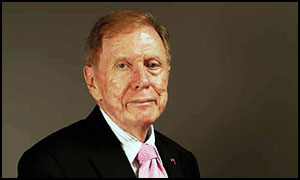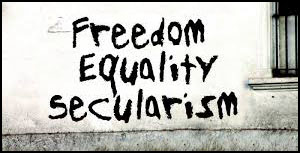As regards religion and God I have long been outspoken, my book is full of essays on the issue; new: SECULARISM ... recently I added pages XXXIV, XXXV and XXXVI.
Read the article in The Guardian about Michael Kirby's comments on the proposed Religious Freedom Bill.

Religious freedom bill
'will sustain nastiness and hostility'
Michael Kirby warns
The Coalition’s religious freedom bill will result in a rise in both religious intolerance and anti-religious hostility, threatening secularism in Australia, Michael Kirby has warned.
The former high court justice has labelled it an “unbalanced law that will sustain nastiness and hostility that we can well do without” in his first intervention in the debate since Christian Porter released the draft religious discrimination bill in August.
The attorney general has promised to introduce the bill to parliament before the year’s end, but faces an uphill battle to pass it, with human rights and LGBTI groups, employer bodies and state anti-discrimination commissionsopposed, and key crossbench senators saying skepticism it is needed.
In a letter to the Australian Law Journal, Kirby suggested the push for legal protections for “religious freedom” was “a product of hostile religious assertions of a minority of conservative politicians” after the passage of marriage equality legislation in 2017.
“I am unconvinced that such newfound protections are really needed,” he said. “And I see serious dangers in the present form of the proposed laws.”
Kirby argued that existing discrimination law enacts the principle that “the right to swing my arm ends when I hit another’s chin”, which is “now … being dismantled to give a free go to the religious arm swingers”.
“If this move goes ahead, I predict that the result will be a rise in religious intolerance and also anti-religious hostility to replace the more relaxed [live and let live] tradition of modern Australia.
“This will also damage the principle of secularism, which is one of the most valuable gifts the British tradition provided to us, which we should be vigilant to preserve.”
Kirby said the new laws “will support extreme assertions of religious rights by religious minorities who want to go around condemning others, often based on previously obscure passages in religious texts that faith communities or their zealots invoke to defend their religious freedoms”.
Experts have warned this will legalise speech that offends, insults or humiliates a person based on protected characteristics, overriding prohibitions in Tasmania’s law and section 18C of the federal Racial Discrimination Act.
“Never forget that apartheid in South Africa was ultimately justified by reference to the supposed religious condemnation of miscegeny and that racial intolerance was based on the alleged inferiority of black people traced to contestable biblical texts,” Kirby said.
“Passages of scripture can be found for just about every prejudice known to mankind. “They have even been invoked against natural or innocent features of human nature or conduct such as left-handedness and masturbation.
“There is a need for considerable caution in elevating every religious opinion to an enshrined legal right to hurt and harm others.”
Labor has refused to state a position on the religious discrimination bill, citing the fact it is only an exposure draft which may change before it is introduced.
Porter has suggested he will not be making “massive or substantial” changes to the bill, apart from amendments to address religious institutions’ concerns that their commercial service providers – such as aged care – should be exempt from the prohibition on religious discrimination.
The independent senator Jacqui Lambie has said existing religious discrimination laws in Tasmania are working well, while Centre Alliance’s Rex Patrick has said he is yet to be convinced about the merits of the bill.

Ten Point Plan for a Secular Australia
Australia has traditionally been wary of mixing religion and politics. Unlike the UK and many European countries, Australia has no established church; unlike the US, there has been little pressure on political candidates to profess their religious credentials. The number of Australians explicitly rejecting religious affiliation has grown from just 4% in 1901 to nearly a third (30%) in 2016.
Historically Australia has been burnt by sectarian strife, particularly animosity between Protestants and Catholics. So bitter was this enmity that it led to the breakup of the Labor Party in the 1950s, and to Federal funding of a separate Catholic education system to keep the peace.
Of more recent times, evangelical Protestants have been fighting back. Taking a cue from other countries, they have been taking advantage of government-mandated “Special Religious Instruction” in government schools. Parents have been faced with an invidious choice: expose their children to explicit proselytising, or risk their social isolation by withdrawing them.
The influence of religion in politics is increasing. Even a supposedly atheist Prime Minister, Julia Gillard, gave in to religious lobbying and directed hundreds of millions of dollars to pay for religious chaplains in schools. In Tony Abbott, we had a Prime Minister heavily influenced by the most divisive Catholic activist in Australian history, BA Santamaria. And the conservative right within the Coalition government is unashamedly flexing its political muscles.
It’s time to return Australia to its secular roots. As former High Court judge and RSA Patron Michael Kirby has said, “The principle of secularism is one of the greatest developments in human rights in the world. We must safeguard and protect it, for it can come under threat in contemporary Australia.”
Australians deserve a liberal, pluralistic and secular Australia.
Government policies should be based on inquiry, evidence, and reason, not religious beliefs. Everyone should be free to follow their own religious or non-religious worldview, provided that doing so does not harm or unnecessarily restrict others.
We therefore call for the following:
1. A secular, pluralistic and democratic Australia
- Government policies should be based on evidence, reason and compassion, and protect the human rights of all Australians.
- Everyone should be free to choose and hold their own religious or non-religious worldviews, provided they do not impose such views on others, and provided practices associated with such worldviews do no harm.
2. Clear separation between religion and the State
- All Australian constitutions should be reformed to ensure clear separation between religion and the State, and all references to God removed.
- Parliamentary prayers and religious references in statutory oaths should be removed.
- No laws made by parliaments nor decisions of executive government should privilege or promote religion.
3. ‘One law for all’, with no recognition of parallel legal systems
- Religious institutions should not be permitted to exempt themselves from the law of the land. Canon law must not take precedence over Australian law.
- Sharia courts should not be officially recognised.
- There should be mandatory reporting by religious functionaries of actual or suspected child abuse.
4. Religious organisations subject to the same laws as other organisations
- The ‘advancement of religion’ should be removed from the statutory definition of charity, and religious organisations should not enjoy automatic tax exempt status.
- Religious organisations should be subject to anti-discrimination laws in employment and service provision.
- Government funding to religious organisations such as schools and hospitals should be subject to rigorous accountability to ensure compliance with anti-discrimination laws and the absence of proselytising.
5. Children not to suffer because of the religious views of their parents
- Decisions about children’s healthcare should be based on evidence-based medicine, not the religious worldviews of their parents.
- No organisation, whether religious or not, should be allowed to restrict children’s education or to isolate them within closed communities.
6. Education to be strictly secular, not promoting any particular religion
- National and state curricula should include the study of a range of religious and non-religious worldviews, taught by professionally trained teachers.
- Government resources should not be used to support particular religious views, programs of religious instruction, or the employment of religious functionaries in educational settings.
7. No discrimination on the basis of a person’s sex, sexuality or gender identity
- Australian governments should not impose a religious bias on the definition of marriage, or on the right to adopt.
8. Freedom of reproductive choice, with no religious interference
- Termination of pregnancy should be decriminalised in all States and Territories.
- Governments should make access to evidence-based sexual and reproductive health information and healthcare services universally available.
- Age-appropriate sex and relationships education should be included in national and state curricula.
9. Healthcare available to all regardless of the religious views of the provider
- Public hospitals must not be allowed to restrict treatment on the basis of religious worldviews.
- Private hospitals must not refuse emergency treatment on the basis of religious worldviews.
10. Guaranteed control over one's own body, free from religious interference, when facing the end of life
- ‘Advance directives’ should be given legal force.
- Physician-assisted suicide, with appropriate safeguards, should be decriminalised.
- Governments should fund non-religious palliative care services.